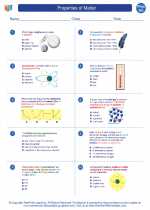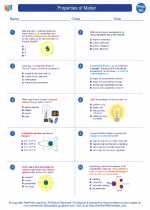Cosmology
Cosmology is the branch of astronomy that deals with the study of the origins, evolution, and eventual fate of the universe. It encompasses a wide range of topics, including the Big Bang theory, the expansion of the universe, dark matter, dark energy, and the formation and structure of galaxies and larger cosmic structures.
Key Concepts in Cosmology
- Big Bang Theory: The prevailing cosmological model that describes the early development of the universe. It posits that the universe originated from a singularity and has been expanding ever since.
- Expansion of the Universe: The observation that galaxies are moving away from each other, indicating that the universe is expanding. This is supported by the redshift of distant galaxies.
- Dark Matter: A form of matter that does not emit, absorb, or reflect light, but exerts gravitational effects on visible matter. It is thought to make up a significant portion of the total mass of the universe.
- Dark Energy: A mysterious form of energy that is causing the expansion of the universe to accelerate. Its nature is not well understood, but it is believed to dominate the overall energy content of the universe.
- Galaxy Formation: The process by which galaxies, including our own Milky Way, formed from the gravitational collapse of primordial gas and dust.
Study Guide for Cosmology
To study cosmology effectively, it is important to have a strong foundation in physics and astronomy. Here are some key topics to focus on:
- Classical Mechanics: Understanding the principles of mechanics, including Newton's laws of motion and the concept of gravity, will provide a basis for understanding the motion of celestial bodies and the dynamics of the universe.
- Electromagnetism: Knowledge of electromagnetism is essential for understanding the behavior of light, which is crucial for studying the properties of distant celestial objects and the early universe.
- Thermodynamics and Statistical Mechanics: These topics are important for understanding the behavior of matter and energy in the context of the expanding universe and the formation of cosmic structures.
- Modern Physics: Concepts from modern physics, such as quantum mechanics and special relativity, are relevant for understanding the behavior of particles and radiation in the early universe.
- Astronomy and Observational Techniques: Familiarity with astronomical observation methods, including telescopes, spectroscopy, and imaging techniques, is important for interpreting cosmological data and observations.
Additionally, staying informed about the latest developments in cosmology through scientific journals, books, and reputable online sources can provide valuable insights into ongoing research and discoveries in the field.
By mastering these fundamental concepts and staying updated on the latest research, students can develop a deep understanding of cosmology and contribute to our collective knowledge of the universe.
[Cosmology] Related Worksheets and Study Guides:
.◂Physics Worksheets and Study Guides High School. Properties of Matter

 Worksheet/Answer key
Worksheet/Answer key
 Worksheet/Answer key
Worksheet/Answer key
 Worksheet/Answer key
Worksheet/Answer key
